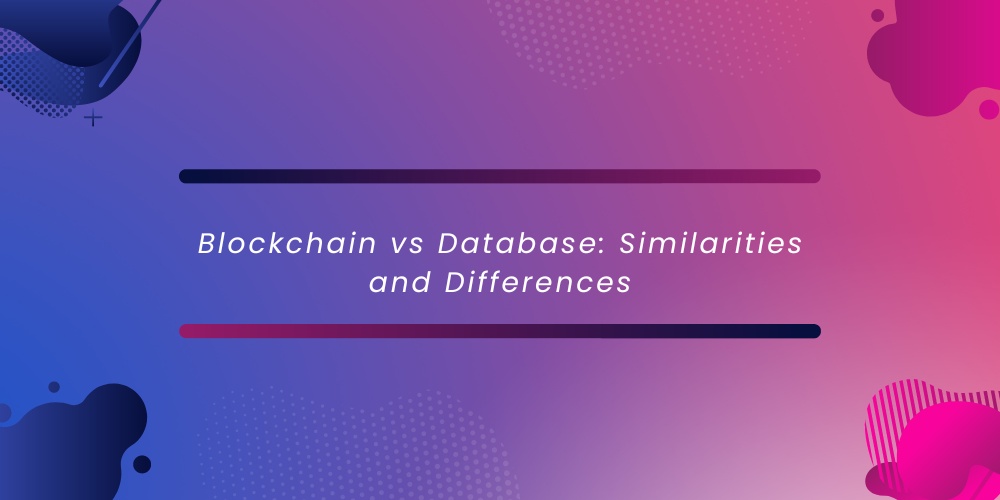If you've heard about cryptocurrency, then you’ll probably have some information about blockchain. Blockchain is an emerging technology that processes secure, transparent, and unalterable transactions in an attack-proof digital ledger. Another unique feature of this technology is the provision of decentralization that eliminates the need for intermediaries. Information flows in every organization and it is secured by various means. Businesses are now keen to transform their business infrastructure with blockchain development services.
But the question is, ‘how is blockchain different from a database although both save data?’
So let's have a look at the key features of both blockchain technology and databases and determine their differences.
Blockchain
Blockchain is a distributed ledger technology (DLT) that stores a growing list of records, called blocks. All these records are linked to each other using cryptography in a highly secure way so that no unauthorized entity could access them without permission. Each block is secure with strong cryptographic hashed data of the previous block. SHA256 is one hashing algorithm used in blockchain to encrypt data.
Businesses are transforming their entire infrastructure using blockchain development solutions that use advanced measures to secure and process data.
Some advantages of blockchain technology include:
- A decentralized system with controlled access to data
- Allows quick trade settlements
- Unalterable transactions, once data is pushed to block it cannot be removed or manipulated, ultimately reducing the chances of an attack
- Verified participants in the blockchain
- Use of advanced cryptographic techniques to mitigate the risks of tampering or data breaches
- Ensures democracy as when data is updated, each participant gets the updated copy of data in real-time
Database
In general, the database is a central ledger that stores information. The data on the database can only be accessed, edited, or deleted by an administrator. The database follows a client-server architecture in which clients are the users of the service who request data access to the server where the database is hosted. The administrator grants access to the users when credentials are authenticated.
Some other properties of the database are below.
- Database controls data redundancy in a single file where all data is recorded
- In database management systems, authenticated users can share data
- A centralized database is easy to manage
- Has a recovery and backup system to restore data lost from software or hardware failures
- Offers a variety of user interfaces (GUI & API)
Difference Between Blockchain & Database
After a detailed discussion of the features of blockchain and database separately, you might have got some idea of how they are different from each other. If not, below are mentioned the differences based on key characteristics.
- The database is a centralized storage of data whereas blockchain is decentralized. The database is run by an administrator, blockchain, on the other hand, does not have any central authority to manage the network. Each participant is verified and has equal rights
- In the database, the admin can make changes, no unauthorized entity could access it whereas, in blockchain, users do not need permission. Moreover, once data is stored on the blockchain, it cannot be modified by any participant. Data on the blockchain is irresistible and unalterable
- The database has information that is updated at a particular time whereas the blockchain updates the copies of data in real time for each participant. It also stores the previous information
- The database gets slow sometimes but has good performance to keep unique records whereas blockchain is efficient to perform transactions but slows down when the ledger has a massive amount of data
- When it comes to the cost, a traditional database is less costly than compared to blockchain
- Blockchain offers transparency in the network which means anyone can trust the network. Database on the other hand being centralized does not offer any form of transparency
To sum up, databases and blockchain both store data but have different characteristics, functionalities, and scope for businesses. Blockchain business development involves automation of organizational operations from any sector and offers more benefits than a traditional database. The centralized database is still adopted by a majority of businesses where data is stored over a host server. Both have their advantages for business. However, the trend of blockchain technology is penetrating the corporate level.


No comments yet